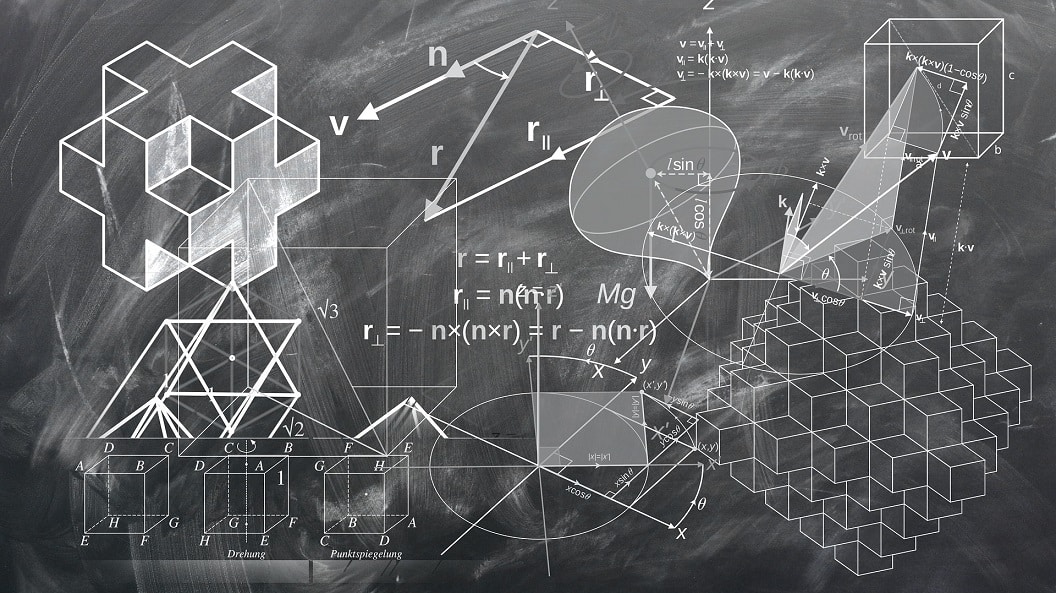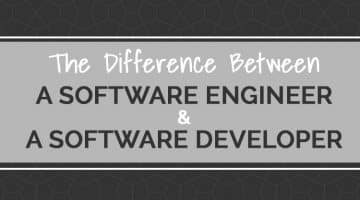Discrete mathematics studies mathematical structures such as graphics, integers, etc. It deals with finite sets of elements rather than infinite or continuous sets of elements. Think of a program that needs an endless number of executions to achieve an objective. Well, that program would run forever and would never accomplish its task. That’s why we need to approximate infinite sets with discrete or limited sets.
Although an intriguing and valuable part of computer science, most software engineers don’t want to deepen their knowledge. Indeed, many market applications don’t need discrete math expertise. However, to be a complete soft engineer, you should at least grasp the basic principles. In this piece, we’re going to propose ten reasons why you should study discrete maths as a software engineer:
1. Discrete math allows you to think like a computer
Computer science has a lot to do with discrete maths (combinators, graphs, etc.) Understanding the essential chapters of discrete math will help you master the fundamentals of computing. It will help you with every part of designing a program, especially in flowcharting and actual coding. Having a firm hold on discrete mathematics will make it easier for you to spot errors and develop new alternatives.
Don’t know where to start? Contact local school institutions, public libraries, or surf the web for wikis and ebooks. YouTube also has a ton of valuable resources to initiate in the world of discrete maths.
2. Learning discrete mathematics will help you with other subjects
Many aspiring programmers want to jump-start their careers by learning advanced programming ideas and don’t account for the fundamentals. For instance, many prospects will sign up for an algorithm class from the get-go. Usually, without solid discrete maths basics, they won’t understand algorithms entirely.
Discrete mathematics is a crucial prerequisite to algorithms because it covers probability, graphics, logic statements, and much more. For example, the graph theories come in handy in networks, compilers, operating systems, etc. Set theories are helpful in databases and software design. Similarly, probability theories are common in AI and machine learning.
3. Real-world issues are solved with discrete maths
Discrete maths has mostly practical uses, unlike continuous maths, which are more theoretical. Discrete mathematics will allow you to understand and propose solutions to problems regarding the physical realm. Software engineers with some discrete math knowledge have better chances of understanding and offering answers.
For instance, an automated fabrication process on an industrial scale is much easier to comprehend with adequate math principles. Math specialists can reduce the whole process to a few formulas and interpret different solutions.
4. Artificial Intelligence and machine reasoning are more accessible with discrete maths
One of the most intriguing chapters in discrete maths regards reasoning and proofs. This particular stage of mathematics examines the logic of discourses. Having some practice in this sector of maths allows you to code better and avoid logical errors.
For instance, a popular exercise in discrete maths courses is finding the liar between two talking machines. Specific formulas will allow you to spot the liar quickly and address its logic issues.
5. Discrete maths isn’t that difficult
Finite (discrete) mathematics is easier to understand than continuous (infinite) mathematics. That’s because discrete maths are practical and somewhat intuitive. The only requirement for studying discrete math is simple abstract algebra.
6. Daily issues are solved with discrete maths
Every day we’re confronted with problems that need to be identified and fixed. Discrete maths can make our life easier and automate some of the tasks. For instance, getting rid of spam emails entails an algorithm based on discrete maths. The software analyses the message’s logic and looks for specific patterns. Once the program’s finished, it decides if the message goes to you or straight into the trash.
Many other daily applications can derive from a few equations translated into code. Once you grasp the fundamentals, the possibilities are endless.
7. Discrete maths improve troubleshooting and problem-solving
Studying discrete mathematics will train you to be a better all-around problem solver. That’s because the concepts are focusing on logic and set systems. The mathematical reasoning you’re going to get from discrete maths will help you in many other disciplines. More so, most introductory textbooks have various exercises that train the mind’s ability to analyze, spot issues, and propose solutions. With adequate training, you too can become an overall expert in troubleshooting.
8. Every scientific discipline will get easier with discrete mathematics
If you want to have a clean start in exact sciences, then start learning discrete maths. Just open the table of contents of any discrete math textbook, and you’ll realize how fascinating it is. Whether you’re a noobie or advanced, learning discrete maths will make your academic life way easier.
9. You’ll save time and energy with discrete maths
Everything has to do with mathematics. However, discrete mathematics focuses on practicality. It trains the eye to identify problems in no time. After a few classes, your capability of solving code mistakes will skyrocket. You’ll be able to approach problems rationally, propose formal solutions, and integrate answers quickly.
In the long run, this means more money and more free time. Your brain will start thinking in mathematics, and you’ll produce better and faster results.
10. There’s almost always an undergraduate course for discrete maths
Most universities have an undergrad course for discrete maths. You can study it online or download it. Many students have already learned this discipline and posted homework, student guides, and so on. Also, many free textbooks are available online.
Conclusion
Studying discrete mathematics is an excellent idea for anyone looking to work with computers. This exact science will give you much-needed clarity that results in better and faster coding. To sum it up, software engineers will immensely benefit from learning discrete math because:
- Discrete math allows you to think like a computer;
- Learning discrete mathematics will help you with other subjects;
- Real-world issues are solved with discrete maths;
- Artificial Intelligence and machine reasoning are more accessible with discrete maths;
- Discrete maths isn’t that difficult;
- Daily issues are solved with discrete maths;
- Discrete maths improve troubleshooting and problem-solving;
- Every scientific discipline will get easier with discrete mathematics;
- You’ll save time and energy with discrete maths;
- There’s almost always an undergraduate course for discrete maths.
Bio
Arthur Evans is an expert British writer and proofreader for write my essay for me. Arthur is also an activist for universal intellectual freedom. He’s specialized in digital marketing and self-improvement. In his off time, Arthur likes to relax at home with a good movie or TV show.



